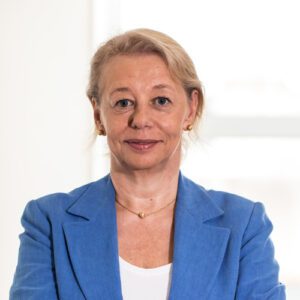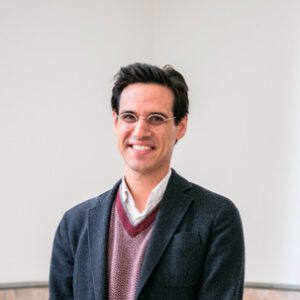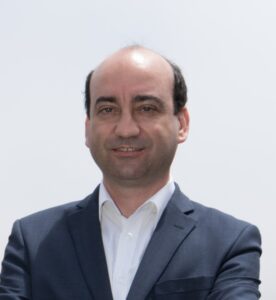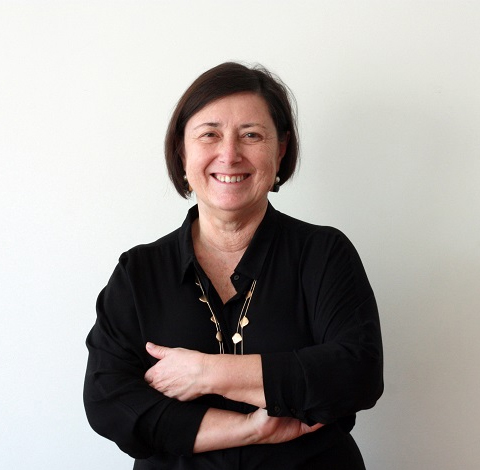Board of Directors

Maria Madalena dos Santos Alves
President
She is a Full Professor of Biological Engineering at the University of Minho, has a degree in Chemical Engineering from the University of Porto, a master's degree in Biochemical Engineering from Instituto Superior Técnico, and a PhD in Chemical and Biological Engineering from the University of Minho.
Madalena Alves was director of the Center for Biological Engineering at the School of Engineering/UMinho and held positions in academic and scientific management and coordination at the University of Minho, including course management, participation in the School Council and the Scientific Council of the School of Engineering of the University of Minho.
His research interests lie in environmental biotechnology and interface areas.
She has been the coordinator, co-coordinator or team member of numerous projects funded at national and European level. As a researcher at the University of Minho, she collaborated with a network of international researchers, and participated in several evaluation committees of international agencies, such as the Helmholtz Association (Germany), or the European Research Council where she has been a panel member since 2021.
Madalena Alves has received several awards, including the Lettinga Prize, funded by Dutch environmental technology companies. She was awarded an Honorary Doctorate by the Technical University of Iasi, in Romania, and received honorary distinctions from the Viana do Castelo City Council and the Braga City Council.

Francisco João Duarte Cordeiro Correia dos Santos
Vice-President
Full Professor in the Department of Computer Engineering at the Instituto Superior Técnico (IST), University of Lisbon (UL), and researcher at INESC-ID.
He has been a professor at IST since 2012, where, in addition to his teaching and research activities, he has held various academic and scientific management positions.
He taught a wide range of subjects in the different cycles of studies, and was awarded the prize for excellence in teaching in all the years he taught at IST.
He holds a PhD in Computer Engineering from the Free University of Brussels (Institute of Artificial Intelligence, IRIDIA-ULB, 2007). He was a Senior Researcher (Chargé de Recherches, FRS-FNRS) at the Machine Learning Group (MLG-ULB) of the same Belgian university, and an Assistant Researcher at the Artificial Intelligence Center of FCT/NOVA.
His research focuses on understanding collective phenomena that occur from the cellular level to human behavior. He has tackled problems such as the evolution of cooperation and social norms, the modeling of climate agreements and their institutions, and the role of technology and social networks in cooperation between humans, among others. These topics are addressed through the development and combination of techniques from areas such as artificial intelligence, mathematical biology, experimental economics and statistical physics.
His career as a researcher and teacher has been the subject of several national and international distinctions, such as the CGD/University of Lisbon Award 2016, the 2017 Young Scientist Award for Socio-Econophysics from the German Physics Society (DPG), the "Blue Sky Paper" Award from the American Association for the Advancement of Artificial Intelligence (AAAI, 2018), the 2022 Excellence Award from the IST Pedagogical Council, or the appointment to the permanent seminar for young scientists (SJC) of the Lisbon Academy of Sciences (2017-2021).

António Bob Moura Santos
Member
He holds a PhD in Economics from ISCTE-IUL, with the thesis "Public policy oriented towards Open Innovation" and a Master's degree in Labor Sciences (2002) and a Bachelor's degree in Economics (1998) from ISCTE.
In 2021, he took on the role of Executive Coordinator of the "Impulso Jovens STEAM" and "Impulso Adultos" (Recovery and Resilience Plan) programs at the Directorate-General for Higher Education. He was a member of the Board of Directors of ANI - Agência Nacional de Inovação (2018-2021), as well as the Executive Committee of FITEC - Fundo de Inovação, Tecnologia e Economia Circular (Innovation, Technology and Circular Economy Fund), and has also been a representative of the areas of Science and Technology in the Economic and Social Council since 2017. Since 2019, he has been the National Delegate of the ERAC (European Research and Innovation Area Committee) Permanent Working Group on Open Science and Innovation (OSI).
Since 2001, he has collaborated with various members of the government in the area of Innovation Policy, having been part of the design, management and monitoring teams for PROINOV (Integrated Innovation Support Program), as Assistant to the Prime Minister's Office, of the XIV Constitutional Government (2001-2002); of the Technological Plan and the Lisbon Strategy (2006-2009), in the Coordination Office of the Technological Plan and the Lisbon Strategy, Presidency of the Council of Ministers; the Digital Agenda (2015) and the National Reform Plan (2009-2011), as Assistant to the Secretary of State for Innovation and Energy; the Digital Portugal Agenda and the National Program for Entrepreneurship and Innovation (2011-2013), in the Office of the Secretary of State for Entrepreneurship, Competitiveness and Innovation.
He was also innovation project manager at UMIC - Innovation and Knowledge Mission Unit, Presidency of the Council of Ministers (2002-2005), responsible for designing the b-ON, OTIC, NEOTEC and Centers of Excellence programs, and collaborated with CEiiA - Center for Engineering and Product Development (2013-2016), in the area of Smart Cities. He also has experience as a lecturer in higher education, and is the author of several articles in scientific publications and academic books, as well as opinion pieces in the area of innovation, technology and digital.

Maria Paula Diogo
Member
Full Professor of History of Technology and Engineering in the Department of Applied Social Sciences at NOVA School of Science and Technology FCT NOVA, where she has taught since 1986. She has been department chair for 4 terms and, from 2007 to 2019, (co)directed CIUHCT - Interuniversity Center for the History of Science and Technology, one of the best-ranked and leading Portuguese research units in the History of Science and Technology.
A pioneer in the field of the History of Technology in Portugal, her research focuses on the History of Technology and Engineering in Portugal and in the former colonies and on the processes of globalization of science and technology, particularly with regard to the circulation and appropriation of knowledge, networks and relations between centers and peripheries. She has recently become interested in the relationship between colonial/imperial engineering and the concept of the Anthropocene, leading the project Engineering the Anthropocene: Colonial Science, Technology and Medicine and the change of the African landscape. In this context, she has participated in and organized events in the context of the international Anthropocene Campus project and, in 2021, she organized the Anthropocene Forum, one of the events integrated in the Portuguese Presidency of the European Council.
She publishes regularly in renowned international journals and is the author, co-author and co-editor of a large number of books and book chapters published by leading publishers. She is a founding member of the main international research networks in her field, has organized numerous national and international conferences and workshops, including those of the leading societies in the field, and has led and participated in dozens of national and international projects. She was included in the "Women in Science" list in 2021 and received the two highest international distinctions in the field of the History of Technology: the Leonardo da Vinci Medal (2020, Society for the History of Technology) and the Kranzberg Lecture (2022, International Committee for the History of Technology), both awarded for the first time to a Portuguese researcher.